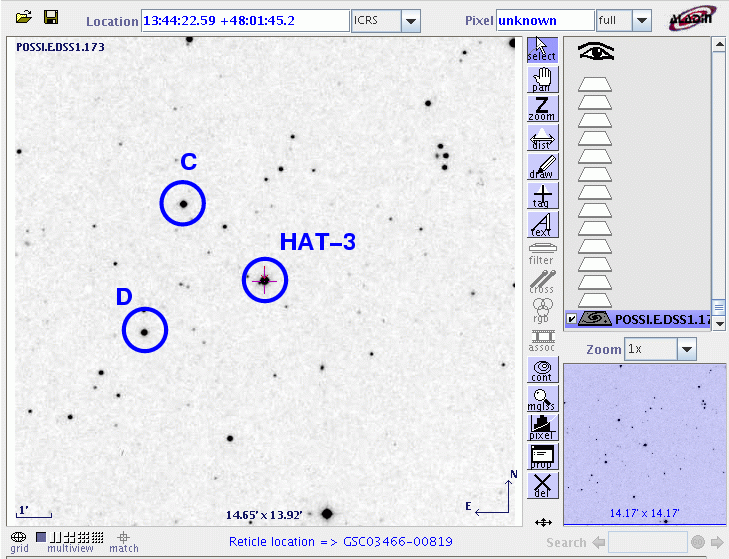
On the night of UT Jun 04, 2008, the SDSS Photometric Telescope ("PT" for short) took a series of exposures of HAT-3. We detected ingress and egress under good conditions, at times roughly predicted by the ephemeris.
Notes from the night
This is a chart of the field. HAT-3 is the bright star indicated by the crosshairs. The labelled stars will appear in later analysis.

The host star of HAT-3 has a magnitude V=11.59 according to HAT-P-3b: A Heavy-Element-rich Planet Transiting a K Dwarf Star.
Following the procedures outlined by Kent Honeycutt's article on inhomogeneous ensemble photometry, I used all stars available in each image to define a reference frame, and measured each star against this frame. You can find the software package used to do the ensemble photometry online; it's free!
The night was very clear. The graph below shows the amount by which instrumental magnitudes from each image needed to be shifted to match the ensemble reference. On a clear night, this graph would show a straight horizontal line. The spike due to clouds occurs at nearly the same time as the predicted egress, alas.
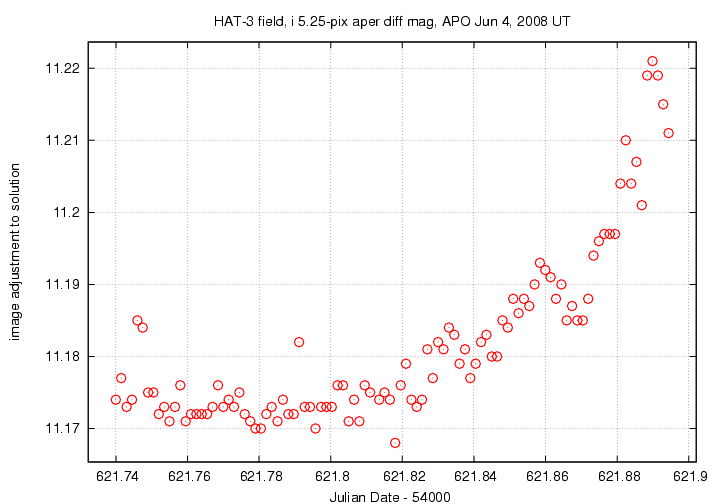
Below is a graph of the scatter in differential magnitude versus magnitude in the ensemble solution.
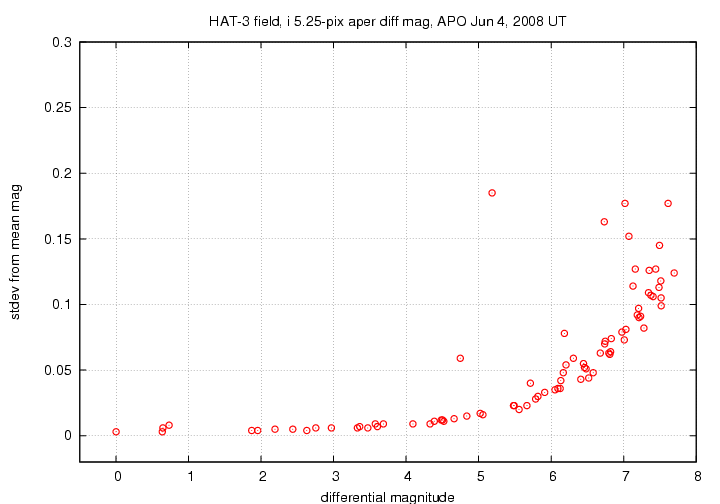
HAT-3 is the star near differential mag 0.7; it shows a small excess of scatter over neighboring stars of the same brightness. The "noise floor" in these measurements is about 0.003 mag -- pretty good.
Below are the light curves for the target (green symbols) and some comparison stars in the field.
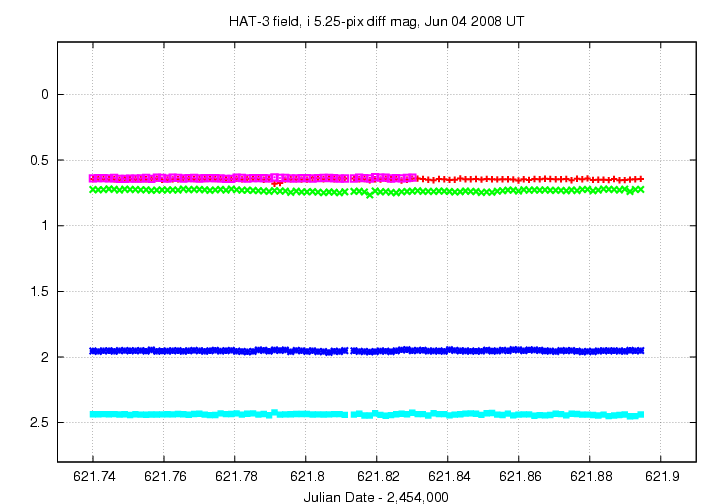
In this closeup, I have shifted the data for two comparison stars to move them closer in magnitude to the target.
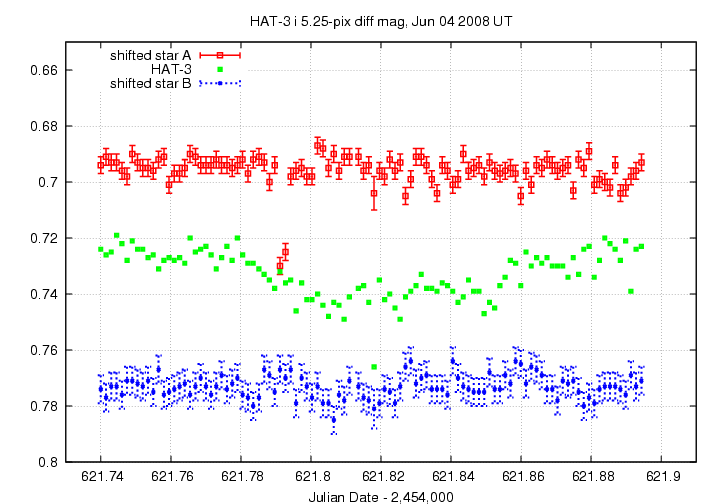
My eyeball estimates the ingress at 621.78. The egress is tougher -- there is one rise at about 621.86, a short plateau, and second small rise to 621.88. I guess the second one at 621.88 is the egress.
Justin's notes indicate that the ephemeris prediction is for ingress at 621.776 -- close to my eyeball estimate -- and egress at 621.863. That is close to the initial rise I noticed in the data.
You can grab the measurements for your own analysis. Below is a table with three flavors of time, plus the differential magnitude of the target and an estimate of the uncertainty in each measurement. I show the first few lines of the file to give you an idea of its format.
# Measurements of HAT-3 made with APO PT, Jun 4, 2008 UT. # Each exposure 45 seconds long in SDSS i-band; # Tabulated times are midexposure (FITS header time - half exposure length) # and accurate only to +/- 1 second (??). # 'mag' is a differential magnitude based on ensemble photometry # using a circular aperture of radius 5.25 arcseconds. # # UT day JD-2,450,000 HJD-2,450,000 mag uncert Jun04.73999 4621.73999 4621.74082 0.724 0.004 Jun04.74150 4621.74150 4621.74233 0.726 0.004 Jun04.74300 4621.74300 4621.74383 0.725 0.004
Last modified 06/24/2008 by MWR.